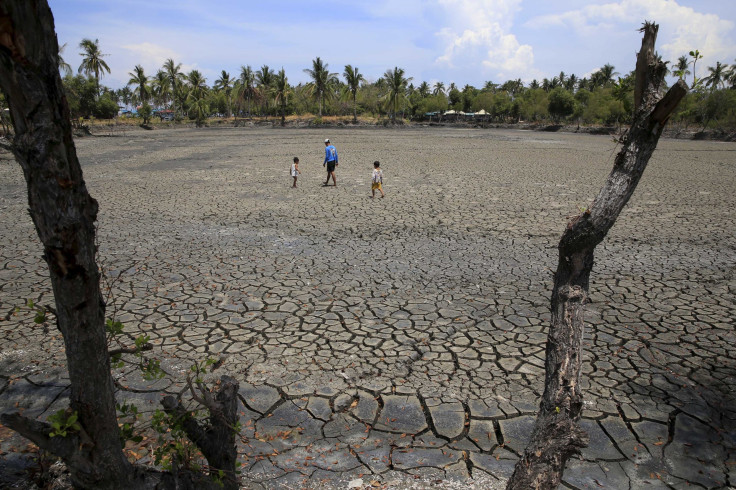Record breaking: World to experience warmest temperatures in 2015, 2016

The UK Met Office has released a report warning the global climate would have record-breaking temperatures in 2015 and 2016. The climate system is set to experience big changes due to the increasing impact of natural trends caused by the growing level of greenhouse gases.
The strong manmade-driven global warming was predicted to reverse and to amplify due to the natural climate cycles in the Pacific and Atlantic Oceans, affecting the climate around the world. The event, according to the Met Office, will alter weather patterns around the world adding more heatwaves.
To date, a major El Niño event is already affecting regions near the Pacific and is expected to heat the world overall. With the latest data the Met Office analysed, it was found that carbon emissions have the largest influence on warming and will continue to increase.
"We know natural patterns contribute to global temperatures in any given year, but the very warm temperatures so far this year indicate the continued impact of (manmade) greenhouse gases,” said Professor Stephen Belcher, director at the Met Office Hadley Centre. “That is why we are emphasising it, because there are so many big changes happening at once. This year and next year are likely to be at, or near, record levels of warming,” said Professor Adam Scaife, leader of the Met Office research team.
The experts predict that a significant peak on the natural cycle of El Niño is now underway in the equatorial Pacific and would prompt increase of world temperatures. The unprecedented warming could be the strongest El Niño since 1998, pushing global temperatures higher, which has already weakened the Indian monsoon and the Atlantic hurricane season.
The current event is expected to increase drought risk in South Africa, East Asia, and the Philippines, and bring floods to southern South America. In 2014, the record for the hottest year was broken, and China, Russia, Australia and parts of South America were seared by extreme heatwaves.
The Met Office report added that the rate of global warming will accelerate fast in coming years as all the signs that the pause in rising air temperatures has ended. In previous reports, the last decade was found to have slow warming of air temperatures, which was referred as the “pause” in climate change by some experts.
However, it was said that global warming had never paused at all, which natural climate cycles led to more of the trapped heat being stored in the oceans. The North Atlantic, the report indicated, is already showing strong signs of a natural cycle moving into a cooler period that may contribute to the predicted warming in the next two years.
The cycle has less impact on global temperature than manmade climate change or Pacific Ocean cycles. But in 1980s, cooler periods in Atlantic waters have been associated with severe African droughts and more rain in the US.
“A lot of these cycles can occur without the influence of human beings, but they are now occurring on top of the influence of man’s activities,” Scaife said.
The warning comes ahead of the world leaders meeting in Paris in December to discuss a global deal to curb global warming. However, those in opposition to curb climate change said that the pause in climate change is a valid reason to refuse urgent cuts in carbon emissions.
But Professor Rowan Sutton, at the University of Reading and who reviewed the Met Office report, said that none of the debate around the pause has changed their long term understanding of greenhouse-gas-driven climate change, which is the primary point for Paris. “The fact that 2014, 2015 and 2016 look like being among the very warmest years on record is a further reminder about climate change.”
Contact the writer at feedback@ibtimes.com.au or tell us what you think below.




















